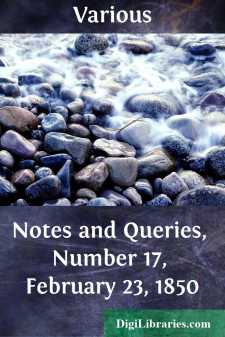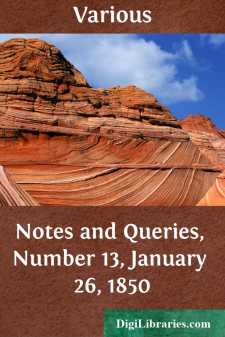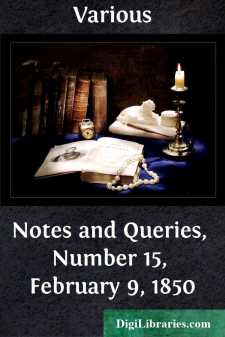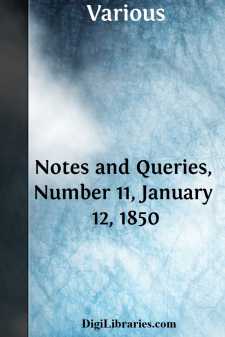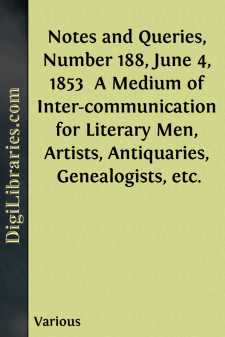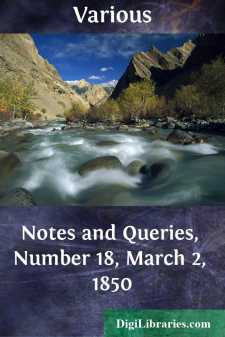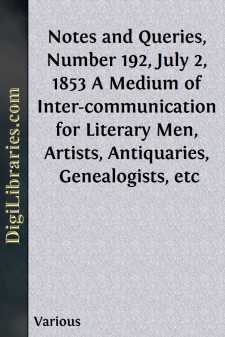Categories
- Antiques & Collectibles 13
- Architecture 36
- Art 48
- Bibles 22
- Biography & Autobiography 813
- Body, Mind & Spirit 142
- Business & Economics 28
- Children's Books 15
- Children's Fiction 12
- Computers 4
- Cooking 94
- Crafts & Hobbies 4
- Drama 346
- Education 46
- Family & Relationships 57
- Fiction 11829
- Games 19
- Gardening 17
- Health & Fitness 34
- History 1377
- House & Home 1
- Humor 147
- Juvenile Fiction 1873
- Juvenile Nonfiction 202
- Language Arts & Disciplines 88
- Law 16
- Literary Collections 686
- Literary Criticism 179
- Mathematics 13
- Medical 41
- Music 40
- Nature 179
- Non-Classifiable 1768
- Performing Arts 7
- Periodicals 1453
- Philosophy 64
- Photography 2
- Poetry 896
- Political Science 203
- Psychology 42
- Reference 154
- Religion 513
- Science 126
- Self-Help 84
- Social Science 81
- Sports & Recreation 34
- Study Aids 3
- Technology & Engineering 59
- Transportation 23
- Travel 463
- True Crime 29
Sort by:
by:
Various
KING ALFRED'S GEOGRAPHY OF EUROPE. The sketch of Europe, which our illustrious Alfred has inserted in his translation of Orosius, is justly considered, both here and on the Continent, as a valuable fragment of antiquity; and I am sorry that I can commend little more than the pains taken by his translators, the celebrated Daines Barrington and Dr. Ingram, to make it available to ordinary readers....
more...
by:
Various
OUR PROGRESS We have this week been called upon to take a step which neither our best friends nor our own hopes could have anticipated. Having failed in our endeavours to supply by other means the increasing demand for complete sets of our "NOTES AND QUERIES," we have been compelled to reprint the first four numbers. It is with no slight feelings of pride and satisfaction that we record the...
more...
by:
Various
ORIGIN OF A WELL-KNOWN PASSAGE IN HUDIBRAS. The often-quoted lines— "For he that fights and runs away May live to fight another day," generally supposed to form a part of Hudibras, are to be found (as Mr. Cunningham points out, at p. 602. of his Handbook for London), in the Musarum Deliciæ, 12mo. 1656; a clever collection of "witty trifles," by Sir John Mennis and Dr. James Smith....
more...
by:
Various
DOMINGO LOMELYN, JESTER TO HENRY VIII. Shakespeare, in the Second Part of Henry IV. act v. sc. 3 makes Silence sing the following scrap:— "Do me right, And dub me knight: Samingo." And Nash, in his Summer's Last Will and Testament, 1600 (reprinted in the last edition of Dodsley's Old Plays, vol. xi. p. 47.) has "Monsieur Mingo for quaffing doth surpass, In cup, in can, or glass;...
more...
by:
Various
ENGLISH AND AMERICAN REPRINTS OF OLD BOOKS Most people are aware of the great demand there is for English literature, and indeed for all literature in the United States: for some years the anxiety of persons in that part of the world to obtain copies of our early printed books, prose, poetry, and plays, has been well known to such as collect and sell them on this side of the water. Where American...
more...
by:
Various
MARLOWE AND THE OLD “TAMING OF A SHREW.” I regret that my communication (No. 13. p. 194.), on the subject of the authorship of The Taming of a Shrew, was too late to be of any avail for the already-published new edition of Marlowe’s works; and, had I been aware of such being the case, I should have waited until I had had an opportunity of seeing a work whose editor may entertain views in...
more...
by:
Various
SIR EDWARD DERING'S HOUSEHOLD BOOK, A.D. 1648-52. About ten years since, I remember seeing, in the hands of a London bookseller, a curious MS. purporting to be the "Household Book of Receipts and Expences of Sir Edward Dering, Bart., of Surrenden Dering, Kent, from Lady-Day, 1648, to April, 1652." It was a think folio, in the original binding, entirely in the hand-writing of the...
more...
by:
Various
NOTES ON SEVERAL MISUNDERSTOOD WORDS. (Continued from p. 522.) Dare, to lurk, or cause to lurk; used both transitively and intransitively. Apparently the root of dark and dearn. "Here, quod he, it ought ynough suffice, Five houres for to slepe upon a night: But it were for an olde appalled wight, As ben thise wedded men, that lie and dare, As in a fourme sitteth a wery hare." Tyrwhitt's...
more...
by:
Various
NOTES UNPUBLISHED LETTER OF HORACE WALPOLE I have the pleasure of inclosing to you (I believe) an unpublished letter of Horace Walpole's. It was found among the papers of the late William Parsons, one of the Della Cruscan poets. That it is genuine I have no doubt. The handwriting is precisely similar to a note sent with a copy of the Mysterious Mother to Mr. Parsons, in which Horace Walpole...
more...
by:
Various
OBLATION OF A WHITE BULL. By lease dated 28th April, 1533, the Abbat of St. Edmund's Bury demised to John Wright, glazier, and John Anable, pewterer, of Bury, the manor of Haberdon appurtenant to the office of Sacrist in that monastery, with four acres in the Vynefeld, for twenty years, at the rent of 5l. 4s. to the Sacrist; the tenants also to find a white bull every year of their term, as often...
more...


